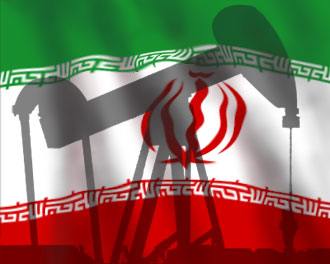Iran Analysis: Will the European Union Ban Imports of Tehran's Oil? (Probably.)
 Saturday, December 10, 2011 at 15:21 |
Saturday, December 10, 2011 at 15:21 |  Scott Lucas in
Scott Lucas in  EA Middle East and Turkey,
EA Middle East and Turkey,  Middle East and Iran
Middle East and Iran  Last week we noted that the European Union had not imposed a ban on imports on Iranian oil, primiarly because of the concern of southern European countries such as Greece over a cut-off of supplies; however, we noted that the EU was pursuing alternative suppliers and would likely revive the issue at its next meeting in January.
Last week we noted that the European Union had not imposed a ban on imports on Iranian oil, primiarly because of the concern of southern European countries such as Greece over a cut-off of supplies; however, we noted that the EU was pursuing alternative suppliers and would likely revive the issue at its next meeting in January.
An EA source offers analysis:
It appears that an EU embargo is highly likely. EU Energy Commissioner Guenther Oettinger is being saying it appears consensus has been reached on the matter.
The UK Embassy takeover in Tehran seems to have been a critical turning point. Before that the French didn't have many EU allies for the idea, with the southern tier particularly opposed, but afterwards the UK turned fully in favor. With Britain, France, and Germany now supporting the ban, the southern Europeans --- who are much more heavily reliant on Iranian crude, with the Spanish and Italians the biggest and Greece a meaningful one because of the easy credit terms Iran has been providing --- felt that the tide had turned and made the cut-off inevitable. So they flipped their position and just asked for time to adjust.
The embargo will probably be formally agreed in late January, with actual barrels and flows beginning to be affected at the end of the first quarter and the start of the second. This will hopefully allow time for firms to find alternative sources. The example of adjustment to the much smaller Syrian embargo is being cited as a model, with the timing roughly coinciding with the spring refinery maintenance season and seasonal decline in oil product demand, hopefully lessening the immediate market impact.
Lawrence Eagles, of JP Morgan's research team and a former International Energy Agency official, has raised the possibility that if the Iranians feel like an embargo is inevitable, they may decide to act first: "You're not embargoing us, we're embargoing you!" This could take away the adjustment period which Mediterranean refiners are seeking, at least after Iranian storage tanks in Sidi Kerir are emptied.
However, this would also likely give the Iranians less time to switch buyers and raises the risk to them that they would have to park a bunch of crude in floating storage in the Gulf for several months until new customers and associated payment mechanisms could be arranged. They regularly have to do this for their extra heavy barrels which face frequent seasonal lack of demand, but these would be much larger volumes and would mean a much larger temporary loss of income and a net loss of barrels to the market until flows could resume.
Heavy and sour crude markets in the Atlantic Basin are already exceptionally tight these days, and an embargo which will send more Iranian barrels east would severely exacerbate the situation unless the Saudis step in to provide more sour barrels to Europe. That remains an unknown: one has to consider whether the Saudis want to swap their share of the growing Asian market for the declining European market.
I imagine there is a strong behind the scenes Saudi effort to negotiate with the Chinese, Indians and others to protect their market share in the East. If the ban can be made more or less global, then the Saudis will likely be more satisfied on the issue of protecting their market share, but 1) this will be diplomatically difficult, especially getting the Chinese --- who could be poised to pick up a bunch of extra crude at a discount --- on board; 2) an embargo would almost certainly drive the outright price of crude up, whether or not the Saudis maximized their production to compensate; and 3) a massively higher outright crude price would almost certainly induce or exacerbate the double-dip recession of which so many are afraid, including the Saudis.

Reader Comments